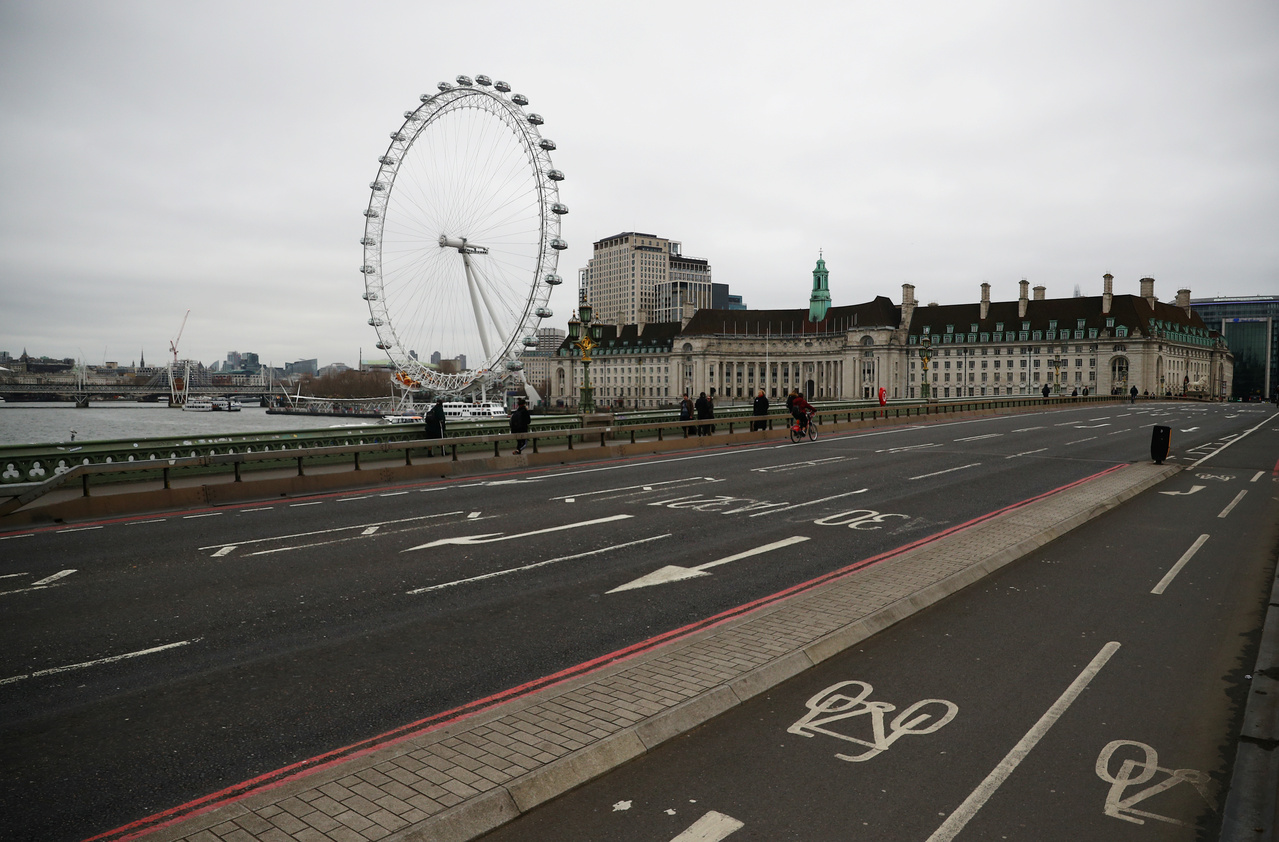The powerful scientific study that shaped US, Britain's coronavirus response
Sign up now: Get ST's newsletters delivered to your inbox

General view of a empty Westminster Bridge in London on March 18, 2020.
PHOTO: REUTERS
SINGAPORE - A scientific paper on the new coronavirus published this week by a team at the Imperial College London has been credited for influencing the British and American governments' response to the pandemic.
Following advice from the report, Britain's Prime Minister Boris Johnson urgently ramped up his response to the escalating outbreak in the country, imposing unprecedented peacetime measures on the population after earlier holding off on them. People were urged to end all non-essential social contact and travel, staff were sent to work from home, and those aged over 70 with underlying health problems were told to isolate for 12 weeks.
In the United States, officials said the report also shaped the White House's response, prompting the authorities to strengthen their social distancing measures to combat the transmission of the fast-spreading disease.
What exactly did this scientific paper say that so compelled the authorities to action and why was it so influential? We answer your most pressing questions:
What is this scientific paper and who is behind it?
The scientific paper, titled "Impact of non-pharmaceutical interventions (NPIs) to reduce Covid-19 mortality and healthcare demand", was published on Monday (March 16).
The study was led by epidemiologist Neil Ferguson and compiled by 31 members of Imperial College London's Covid-19 response team. Professor Ferguson advises the British government's Scientific Advisory Group for Emergencies, which is helping to coordinate the country's coronavirus response.
Prof Ferguson on Wednesday said he was in self-isolation after developing a persistent dry cough and a fever. He had been in Downing Street, which houses Mr Johnson's official residence and office, earlier this week.
What does the report say?
The report referred to the Covid-19 disease as the most serious public health threat seen in a respiratory virus since the 1918 Spanish flu pandemic. The 1918 pandemic killed between 50 million and 100 million people around the world, records show.
The researchers studied the potential effectiveness of several public health strategies to counter the virus, dividing their aims into two broad categories: mitigation and suppression. Mitigation focuses on slowing, but not necessarily stopping epidemic spread. Suppression aims to disrupt transmission so dramatically that each case generates less than one additional infection and the disease is stopped in its tracks.
They concluded that suppression was the "preferred policy option".
The major challenge of suppression, the British scientists concluded, is the length of time that intensive interventions would be needed, given that "we predict that transmission will quickly rebound if interventions are relaxed".
The authors said mitigation policies alone - isolating people suspected of having the virus at home, quarantining their contacts and separating the most vulnerable people from others - might reduce the peak demand on the healthcare system by two-thirds and deaths by half if applied for three months. But that would still result in hundreds of thousands of deaths and in health systems "overwhelmed, many times over", they said.
How did the scientists arrive at their conclusions?
The researchers analysed data from Italy and China to mathematically model how the spread of the coronavirus would affect Britain and the United States in an uncontrolled social environment.
Extrapolating from the data, the study predicted that 81 per cent of the British and American population would be infected, with 510,000 deaths in Britain and 2.2 million in the US. The death rate was expected to peak after three months.

<p>CORTE MADERA, CALIFORNIA - MARCH 17: The parking lot at The Village at Corte Madera shopping mall is nearly empty on March 17, 2020 in Corte Madera, California. Seven San Francisco Bay Area counties have ordered residents to shelter in place in an effort to reduce social interaction and slow the spread of the coronavirus. Justin Sullivan/Getty Images/AFP == FOR NEWSPAPERS, INTERNET, TELCOS & TELEVISION USE ONLY == </p>
PHOTO: GETTY IMAGES NORTH AMERICA
In view of the extreme number of deaths predicted, the scientists recommended that the British and US authorities urgently implement suppression strategies to lower the case count and avoid more fatalities.
"It's not possible to do anything other than adopt the (suppression) strategy," Prof Ferguson, the study's lead author, told the BBC on Tuesday, adding that the study's predicted mortality rate was becoming "the most likely scenario".
What impact has the report had on the authorities and why is it so influential?
The sobering assessment saw London and Washington both announce stringent new social distancing measures on Monday.
A report in the New York Times has argued that it was probably not so much about what the report said, but who was saying it. Imperial College London has ties to the World Health Organisation, and has previously advised the British government in several epidemics, including the severe acute respiratory syndrome (Sars), avian influenza and swine flu.
With additional reporting from Agence France-Press and The New York Times


